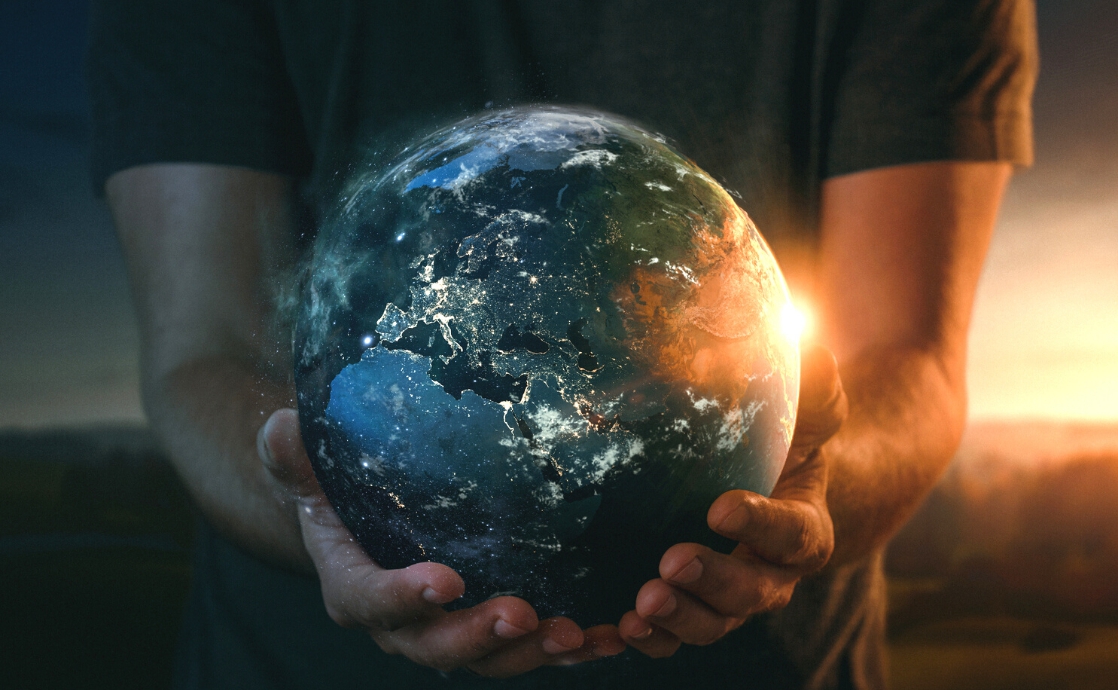The views expressed in our content reflect individual perspectives and do not represent the authoritative views of the Baha'i Faith.
All my life, being born and raised a Baha’i and having investigated and accepted the Faith for myself, my conscience has rested easy in a firm and unshakeable belief in the oneness of humanity.
After all, isn’t the oneness of humanity the central tenet of the Baha’i Faith? Hadn’t Baha’u’llah, its prophet and founder, said:
Ye are the fruits of one tree, and the leaves of one branch. Deal ye one with another with the utmost love and harmony, with friendliness and fellowship. He Who is the Day Star of Truth beareth Me witness! So powerful is the light of unity that it can illuminate the whole earth.
RELATED: The Evolution of Religion: Humanity’s Coming of Age
As a child I learned about the evils of all kinds of prejudice, whether based on race, gender, or nationality. As a youth and a young adult, I became aware of the very real and ugly presence of these prejudices in every aspect of life, and saw first-hand the impact they had on fermenting a deep-seated animosity and mistrust between the groups they defined.
Beneath a polite veneer of “tolerance and understanding,” I learned, simmered a veritable cauldron of resentment and anger, just waiting for a catalyst to boil over into a lava flow of rage and violence.
As I grew older and transitioned to middle age, and enjoyed an above-average level of material prosperity I had been blessed with – very undeservedly, I am convinced – my eyes opened more and more to another impediment to human oneness, the cavernous and ever-growing gap between the rich and the poor. But, still relatively comfortably cocooned in my bubble, I knew that while this evil was prevalent in the world and was wracking it with dissension, discord and disunity, I at least had harmony, concord and unity deeply etched in my DNA, and I didn’t let prejudice creep into my thinking.
Until, as inevitably happens with all bubbles – it burst. I can still quite vividly remember when it did. I was listening to a talk by Payam Akhavan, the well-known Baha’i author, attorney, and human rights activist. He quoted a Persian poem by Saadi, now ornamented into a carpet that hangs in the United Nations building:
Human beings are members of a whole,
In creation of one essence and soul.
If one member is afflicted with pain,
Other members uneasy will remain.
If you have no sympathy for human pain,
The name of human you cannot retain.
It hit me then – that my knowledge of the truth of the oneness of humankind, which my Faith had taught me, had not led me to act on that truth.
Because, as I mentioned, my conscience had rested easy while 700 million people subsist on less than $1.90 a day; while countless millions who are members of minorities continue to be persecuted – economically, psychologically, and physically; while women are still not able to take their proper place in the world and are denied opportunities simply because of their gender; while the GDP of the whole of Sub Saharan Africa (population 1.1 billion) is equal to the GDP of the Netherlands and Switzerland (population 26 million); while a child born in Mexico does not have anywhere close to the educational opportunities that a child born in the United States does; while billions of people worldwide are treated unfairly simply because of the color of their skin; and today, while the number of people in high income countries who have had their Covid-19 vaccine booster shots is almost double the number of total doses in low income countries.
Knowledge of human conditions and the needed remedy for them is not the cause of their betterment …The attainment of any object is conditioned upon knowledge, volition and action. Unless these three conditions are forthcoming there is no execution or accomplishment.
As my realization occurred, these words of Abdu’l-Baha, whom Baha’is regard as the “embodiment of every Baha’i ideal, the incarnation of every Baha’i virtue,” came to my mind. I decided then to look at how he approached this ideal of the oneness of humanity, the pivotal theme of Baha’u’llah’s Faith.
RELATED: How Does the Baha’i Faith Propose to Unify the World?
In hundreds of meetings, gatherings, lectures and private conversations, Abdu’l-Baha put this idea of the human family front and center, challenging the entrenched dogma and thinking of society, articulating a diametrically-opposed possibility of reality. Whether by encouraging interracial gatherings and even marriages in a deeply segregated America when he travelled there in 1912, or by his free association with all classes and religions, or by preaching the truth of Christianity at synagogues and the truth of Islam at churches, or by appointing a woman to head the committee in charge of constructing the North American Baha’i House of Worship, or by countless other acts, Abdu’l-Baha gave real-life, practical examples of how these ideals could transcend mere words and be put into action.
However, more than anything else, it was his relentless, continued, untiring, and unhesitating service to anyone in need that fully and most completely demonstrated what it means to truly believe in the oneness of humanity – and to act on that belief. He said:
When you meet a … stranger, speak to him as to a friend; if he seems to be lonely try to help him, give him of your willing service; if he be sad console him, if poor succour him, if oppressed rescue him, if in misery comfort him. In so doing you will manifest that not in words only, but in deed and in truth, you think of all men as your brothers.
For me, I see a long road forward ahead. There will be many stumbles along the way, but at least what needs to be done seems clear to me now.
















Comments
Sign in or create an account
Continue with Googleor